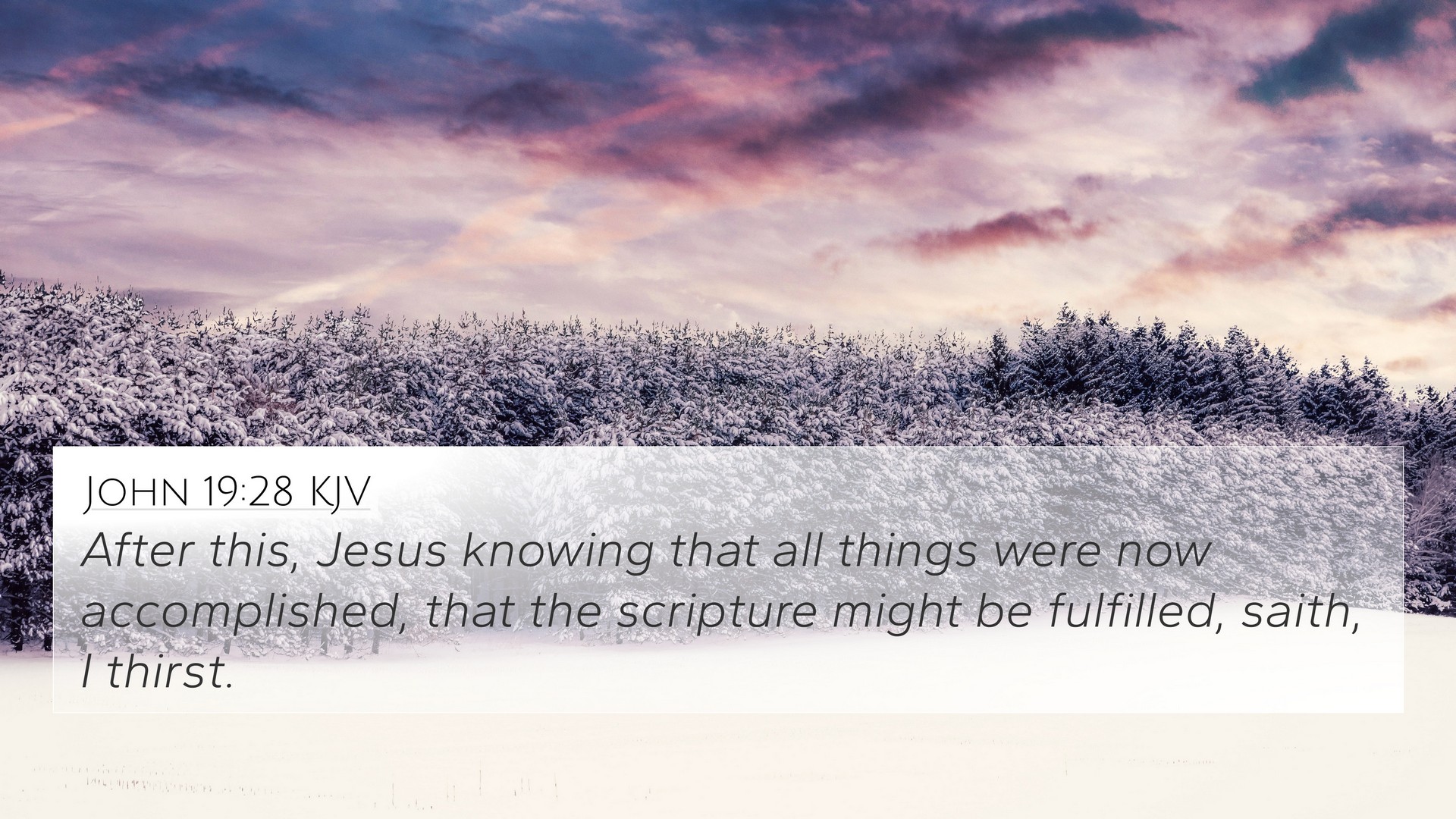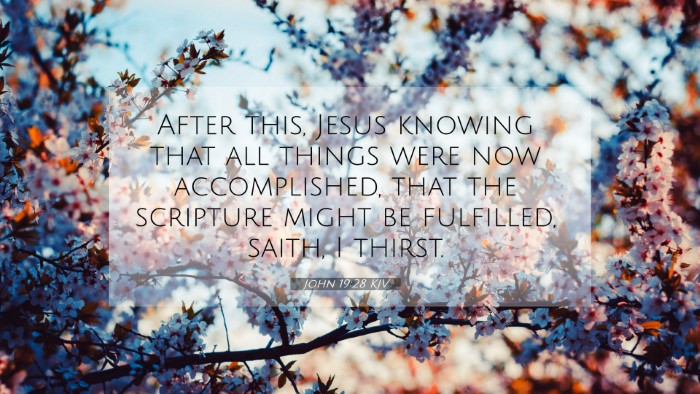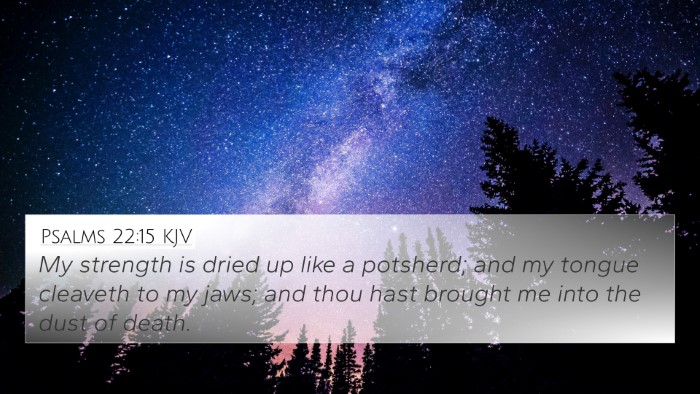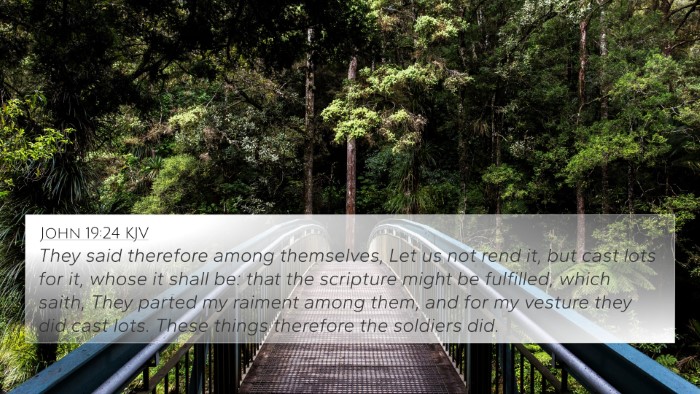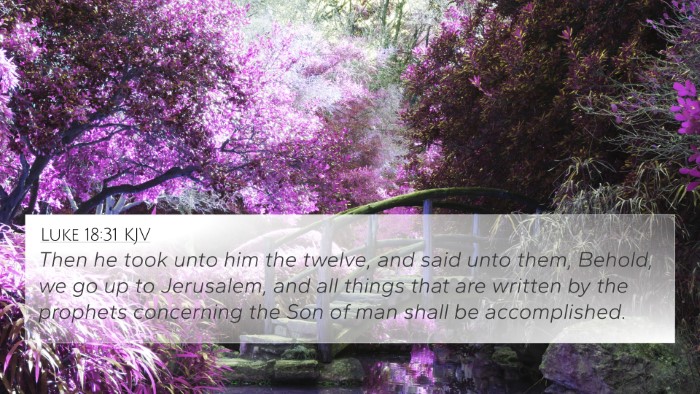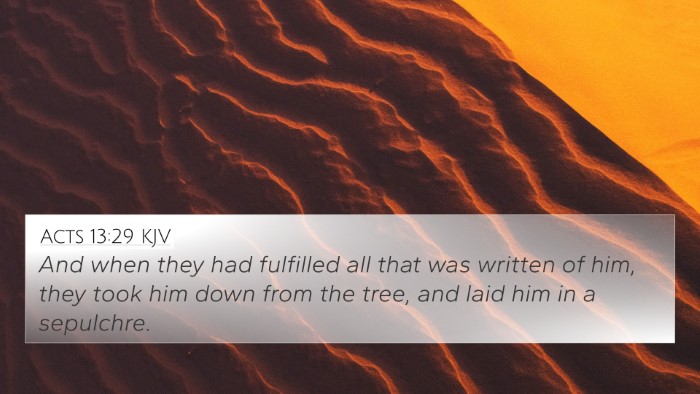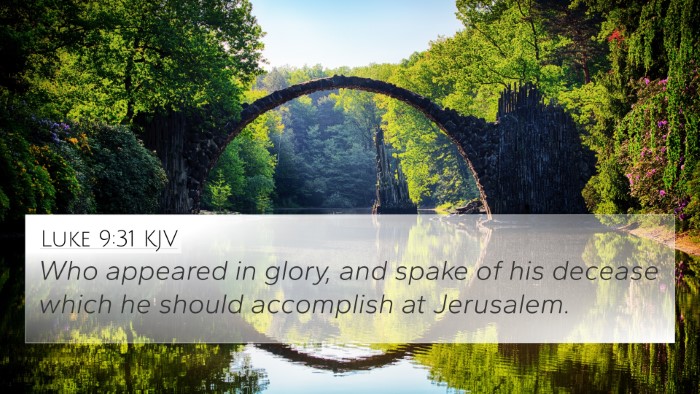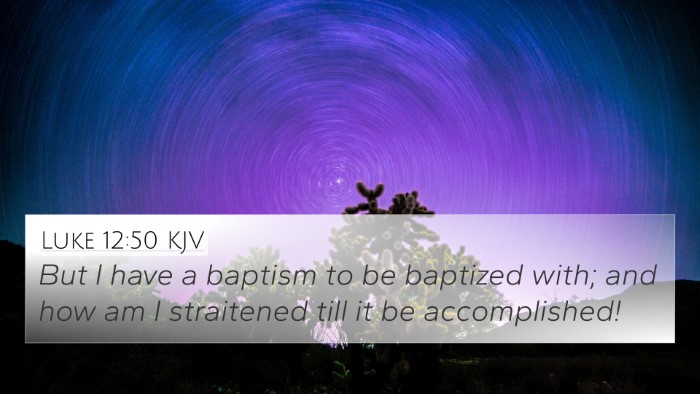Understanding John 19:28 – A Summary of Insights
Verse: John 19:28: "After this, Jesus, knowing that all was now finished, said (to fulfill the Scripture), 'I thirst.'
This short verse carries profound significance within the context of the crucifixion and the fulfillment of Old Testament prophecies. The comments from various public domain commentaries help illuminate its meaning, connections, and implications.
Context and Setting
In this Vicarious Atonement moment, we observe Jesus’ last hours before death. John, emphasizing the fulfillment of Scripture, provides key insights into the nature of Jesus' suffering and mission.
Commentary Insights
-
Matthew Henry's Commentary:
Henry emphasizes the purpose behind Jesus' thirst. He notes its significance in fulfilling Psalm 69:21, where it stands as a symbol of utter desolation. Henry relates this thirst to spiritual thirst, highlighting that Jesus represents both physical need and significant prophetic fulfillment.
-
Albert Barnes' Notes:
Barnes points out the intentional nature of Jesus' declaration of thirst. He indicates that this cry was more than a physical request; it serves to reflect on the prophecy's fulfillment and Jesus' knowledge of His role within God's redemptive plan.
-
Adam Clarke's Commentary:
Clarke discusses the theological implications of Jesus’ thirst, suggesting that it reflects His human nature perfectly united with the divine. He maintains that understanding Jesus' suffering helps believers relate to His full human experience and the depth of His sacrifice.
Thematic Connections
Throughout Scripture, this verse echoes several themes central to understanding Christ's mission:
- ### Fulfillment of Prophecy
Jesus’ statement connects to numerous Old Testament texts which describe the suffering servant and prophetic anguish.
- ### Human Suffering
This verse exemplifies the deepest human needs and highlights Jesus’ shared humanity with our own struggles.
- ### Spiritual Thirst
Jesus' physical thirst can symbolize the deeper thirst for righteousness, linking to Matthew 5:6, “Blessed are those who hunger and thirst for righteousness.”
Cross-References for John 19:28
This verse is accompanied by various related Scriptures that enhance the understanding of its implications:
- Psalm 22:15: "My strength is dried up like a potsherd, and my tongue cleaves to my jaws." – Indicates the suffering Jesus endured.
- Psalm 69:21: "They gave me poison for food, and for my thirst they gave me vinegar to drink." – Directly prophesies elements of Jesus' crucifixion experience.
- Isaiah 53:4: "Surely he has borne our griefs and carried our sorrows." – Speaks to the sacrificial nature of Christ's suffering.
- Matthew 27:48: "And straightway one of them ran, and took a spunge, and filled it with vinegar, and put it on a reed, and gave him to drink." – A direct narrative connection to the fulfillment found in John 19:28.
- John 4:10: "Jesus answered and said to her, 'If you knew the gift of God, and who it is that says to you, 'Give me a drink,' you would have asked him, and he would have given you living water.'” – This references spiritual thirst, contrasted with His physical need on the cross.
- Revelation 21:6: "It is done! I am the Alpha and the Omega, the beginning and the end. To the thirsty I will give from the spring of the water of life without payment." – Connects the ultimate fulfillment of Christ's work with eternal spiritual sustenance.
- Luke 23:36: "And the soldiers also mocked him, coming to him, and offering him vinegar." – Reinforces the connection between mocking and bitter suffering on the cross.
Conclusion
The exploration of John 19:28 showcases the depth of scriptural connections and interconnectedness within the Bible. Tools for Bible cross-referencing enhance our study and understanding of these ties, encouraging believers to engage in thorough and thoughtful Biblical exploration. By recognizing how this verse interlinks with others, we gain enhanced insights into divine purpose and the nature of Christ's sacrifice.
As readers delve into this verse and its rich meanings, they are encouraged to explore the wider context of suffering, fulfillment of prophecy, and the extensive narrative revealed through the connections between Bible verses. This approach fosters a deeper appreciation of the interconnected tapestry of Scripture and the revelations contained within it.
